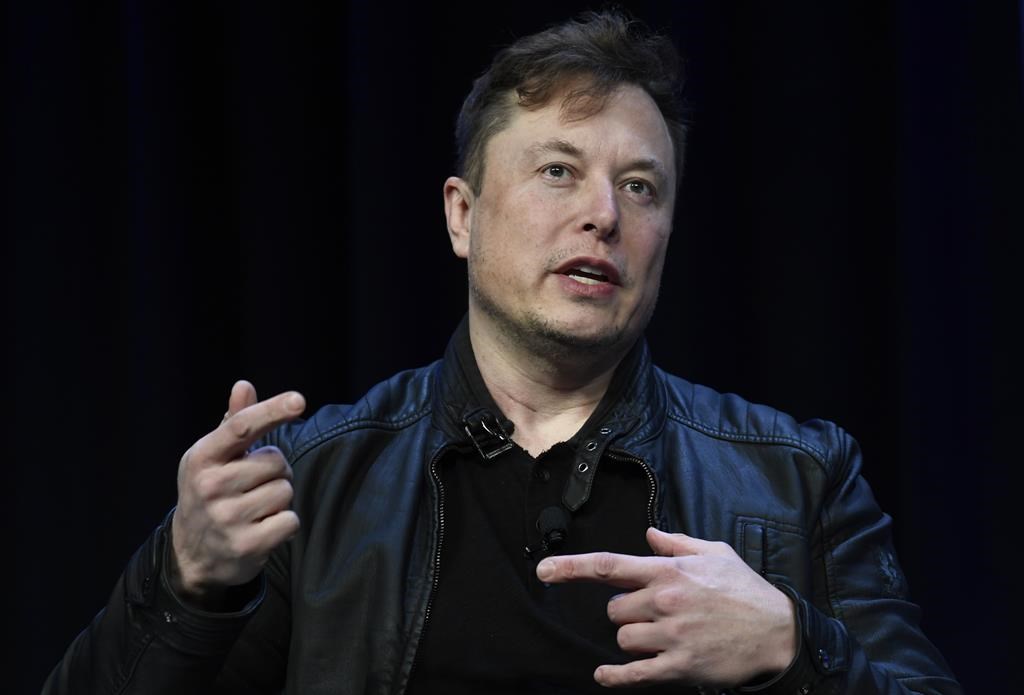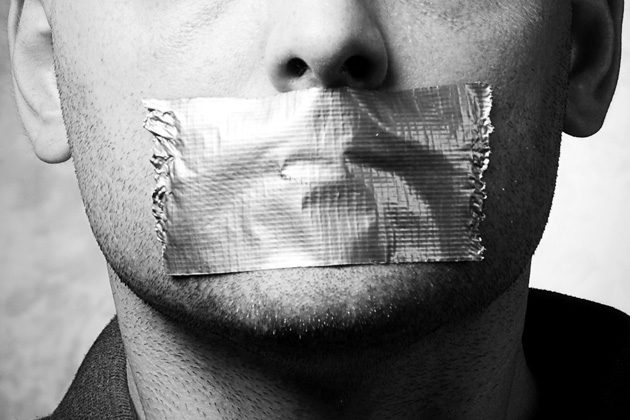This content is restricted to subscribers

The views, opinions and positions expressed by columnists and contributors are the author’s alone. They do not inherently or expressly reflect the views, opinions and/or positions of our publication.

This content is restricted to subscribers
The views, opinions and positions expressed by columnists and contributors are the author’s alone. They do not inherently or expressly reflect the views, opinions and/or positions of our publication.

Elon Musk, the billionaire entrepreneur who has founded companies (Tesla, SpaceX) and purchased others (X, formerly known as Twitter), is a strong proponent of freedom of speech. Last April, he described free speech as “the bedrock of a functioning democracy” and Twitter as being the “digital town square where matters vital to the future of humanity are debated.”
Some of Musk’s critics and supporters have disputed his claim of being a “free speech absolutist.” One recent change of heart does seem to show his commitment to this cherished principle may be stronger now than it ever was before.
This is related to Musk’s decision to remove the long-standing X/Twitter ban on the controversial Texas-based libertarian radio host Alex Jones. It was instituted in Sept. 2018 after an explosive exchange with CNN reporter Oliver Darcy. Musk stood by the existing ban after he purchased Twitter last October. He originally said “No” to social media users when asked if he would reverse it. He later tweeted on Nov. 20, 2022, “My firstborn child died in my arms. I felt his last heartbeat. I have no mercy for anyone who would use the deaths of children for gain, politics or fame.”
This statement was related to the Sandy Hook massacre. We’ll get into that shortly.
Jones has been called everything from an unhinged conspiracy theorist to the most dangerous individual on a political soapbox. He runs a website, InfoWars, and had the ear (for the most part) of former US President Donald Trump when he was in the White House. While he does tackle real news stories and political issues, he also spends an enormous amount of time focusing on outrageous and often unfounded ideas.
The 49-year-old radio host once described 9-11 as an “inside job,” for instance. He’s claimed on several occasions there are “human-animal hybrids.” He’s suggested the chemicals in our waters were turning “the freaking frogs gay.” He supports the legitimacy of the New World Order conspiracy theory and the deep state in Washington. He’s called global warming a hoax. He opposes mandatory vaccination, He’s even claimed former First Lady Michelle Obama may secretly be transgender.
Does he really believe all of this?
Some people have always assumed this. Then again, during Jones’s 2017 custody battle with now ex-wife Kelly, his lawyer, Randall Wilhite, actually said he was “playing a character. He is a performance artist.” That could have been a planned line to protect his client from further repercussions in a difficult legal fight. But if Wilhite’s assessment is true, then some or all of Jones’s statements aren’t legitimate or factual.
Which ones, exactly? God knows.
What we do know is Jones made some horrific allegations and insinuations about the Dec. 14, 2012 Sandy Hook Elementary School shooting. He claimed it may have been nothing more than “synthetic,” “manufactured” and “completely fake with actors” during a 2015 radio broadcast. He also described this massacre that killed 20 young children and six adults as “staged” and a “giant hoax.”
Jones was taken to court for spreading this nonsense by Sandy Hook families. He did apologize to them on multiple occasions, but it was far too late to have any effect. He lost his court case, was ordered to pay $1.5 billion USD and filed for personal bankruptcy on Dec. 2, 2022.
That’s why Musk refused to remove the ban against Jones. The tragic loss of his first child due to sudden infant death syndrome in 2002 had a profound effect on him. He obviously couldn’t forget what happened, and didn’t want to forgive the radio host’s previous words and actions.
What changed?
Carlson’s Dec. 7 interview with Jones played a significant role. It was an interesting discussion that’s received more than 21 million views on X (as of this writing). While Jones had his usual moments of ranting and raving about favourite pet subjects like the deep state, he was also fairly calm and genuinely remorseful about what he had said and done in the past.
This opened many eyes and ears, including Musk’s. He posted a Dec. 9 poll on X which asked, “Reinstate Alex Jones on this platform? Vox Populi, Vox Dei.” Nearly two million people voted, with 70.1 percent saying “yes.” Musk wrote on Dec. 10, “The people have spoken and so it shall be.”
It’s worth mentioning that Musk invited Jones to a Dec. 10 X Spaces conversation. Musk asked Jones specifically about Sandy Hook. Jones apologized and acknowledged the shooting was real and not staged by “crisis actors.” He also said, “I just take calls and interview guests and that I play devil’s advocate. And if that hurt people’s feelings, I apologize.”
Not a perfectly constructed response, but likely good enough for most people.
As I’ve written many times in the past, free speech is the defence of ideas that are either objective or objectionable. We must be willing to support views that appear right to us, and tolerate views that seem wrong. While we’re not required to agree with different viewpoints, we must always defend a person’s right to make his or her views heard in a non-violent manner.
If Jones simply states his opinions on X and doesn’t break the law or call for violence, he’ll be able to use this social media platform to his advantage. Users will always have the ability to either follow, ignore, mute or block Jones. And if someone doesn’t like the fact that Jones was reinstated, that person can leave X at any point and time.
That’s how you properly protect personal liberties and freedoms in a democratic society, including the right to free speech. Kudos to Musk for changing his mind and opening the doors to more ideas and greater discourse.
Michael Taube, a long-time newspaper columnist and political commentator, was a speechwriter for former Canadian prime minister Stephen Harper.
The views, opinions and positions expressed by columnists and contributors are the author’s alone. They do not inherently or expressly reflect the views, opinions and/or positions of our publication.

This content is restricted to subscribers
The views, opinions and positions expressed by columnists and contributors are the author’s alone. They do not inherently or expressly reflect the views, opinions and/or positions of our publication.

Imagine if Chrystia Freeland’s tweet about Erin O’Toole’s health-care policies had been vetted by a layer of government bureaucracy.
For those who been enjoying the summer rather than obsessing over political shenanigans, Freeland tweeted a video of O’Toole seemingly embracing the idea of private health care. But the clip cut the part where O’Toole said universal access is paramount. Twitter flagged Freeland’s tweet as “manipulated media.”
Now imagine if bureaucrats had to make a ruling on Freeland’s tweet.
Should they side with the government that appointed them? Or should they side with someone who might be their boss in a month?
While these questions may seem abstract now, the federal government’s internet censorship agenda could make these questions much more real in short order.
For months, Prime Minister Justin Trudeau has been trying to convince Canadians that we desperately need government bureaucrats to regulate, filter and block online content that might be seen as harmful.
But Freeland’s tweet lays bare the ever-true reality of politics: governments have a poor track record when it comes to telling Canadians the truth. How can we trust bureaucrats appointed by government to become neutral arbiters of truth? The fact is, we can’t.
Canadians are smart. We know that politicians don’t always tell the truth. We can tell when words are taken out of context. No government adjudication is necessary.
Yet, earlier this year, the Trudeau government introduced Bill C-10. The legislation sought to give massive new powers to government bureaucrats to put Canadians’ online content under the microscope.
Under the guise of promoting Canadian content, unelected regulators at the Canadian Radio-Television and Telecommunications Commission would have been given the power to monitor what Canadians watch and share online and ensure it conforms to government approved standards.
This attack on free speech is unprecedented.
“Regulating user generated content in this manner is entirely unworkable, a risk to net neutrality, and a threat to freedom of expression,” said University of Ottawa Law Professor Michael Geist.
The government also released a proposal for a so-called online harms bill earlier this summer, which would take government censorship a step further.
The Trudeau government’s rationale for introducing this sweeping new legislation was supposedly to guard against online harms like hate speech and child pornography, but these evils have already been illegal under the criminal code for decades.
The government’s proposal would create a new Digital Safety Commission, led by a Commissioner chosen by cabinet, and a new tribunal, whose members would be chosen by the minister of heritage.
Collectively, the Commissioner and the tribunal would be empowered to recommend and ultimately block online content that they deem to be harmful.
Given that all of the powerful actors would be appointed by politicians, there is a clear risk that the very partisans that appoint these bureaucrats might be able to influence what should or should not be removed online.
While the targeted content might be online harms today, what’s to stop the government from expanding the parameters of those bureaucrats’ powers tomorrow?
The combination of Bill C-10 and the online harms legislation sets the stage for significant government influence over what Canadians can watch, see and share. And these powers could easily be expanded in the future.
Freeland’s tweet has unintentionally shown Canadians exactly why government bureaucrats should not become Canada’s new arbiters of truth.
When it comes to freedom of expression, Canadians, not government bureaucrats, should be put in the driver’s seat.
Jay Goldberg is the Interim Ontario Director at the Canadian Taxpayers Federation
The views, opinions and positions expressed by columnists and contributors are the author’s alone. They do not inherently or expressly reflect the views, opinions and/or positions of our publication.

The ongoing ruckus over Bill C-10’s effort to impose censorship indicates the arrogance as well as incompetence of the people we now trust to manage our affairs and, it seems, us. And with so many such examples nowadays it’s hard to know where to start. But I’m going with free speech because if it one slips away we won’t be in a position to discuss the others.
If I say I’m starting with Bill C-76 some smart-aleck will say I already started with Bill C-10. But I started with censorship, and C-76 is the 2018 bill where the government tried to stop you from saying bad stuff about them during an election.
The effort was inept and ineptitude is a big issue nowadays. Chris Selley reports in Thursday’s National Post that the Canadian Medical Association was on the verge of calling for four more months of lockdowns before someone somewhere somehow convinced them that it wasn’t a smart thing to say. But they’d already drafted the press release, and then the Post got hold of it. But I digress.
The point is that same government currently trying to control what you can post online slipped the word “knowingly” out of its law against publishing false information about a public figure during an election back in 2018. The arrogance and hypocrisy are breathtaking, given the systematic way the Liberals publish false information about their adversaries. But of course they aren’t covered: One law for thee and another for me.
So it was bad enough with the word “knowingly” in there. Especially since the election gag law said you were just some shabby citizen who really ought to shut up anyway. The one Stephen Harper railed against in opposition then decided was pretty keen once he had power.
Of course its censorship was indirect. They didn’t throw you in the calabozo for calling the PM a bozo. They threw you in the calabozo for raising enough money to be heard saying it. It was, to steal a phrase from Churchill, like being smothered by a feather mattress.
Oddly, the sensation didn’t seem to bother many Canadians. Lots of us inhaled the government view that without such laws, sinister rich people would take possession of our minds. Which rather amounts to admitting you need to be protected from ideas by wise guardians. Especially since it’s OK for politicians to spend vast sums hypnotizing us, presumably not because their ads are too stupid to persuade but because they’re better than us.
There’s the rub. As with all restrictions on free speech, the fundamental notion is that we ordinary rubes can’t handle the truth, intellectually, morally or both.
I do not know whether those in power have considered and rejected the other view or never heard of it. Before the House of Commons Standing Committee on Justice and Human Rights back in 2019, beside Mark Steyn and Lindsay Shepherd, I got to remind MPs, as I politely put it, of John Stuart Mill’s brilliant advocacy of free speech on three key grounds: 1) an unfamiliar idea might turn out to be true; 2) if it’s false, sunlight will destroy evil; and 3) in vigorously defending correct ideas, a citizen comes to hold them as living truths not dead dogmas. But the MPs with few exceptions were either uninterested or so overtly hostile that one NDP MP filibustered us.
In a way it’s not surprising. Those in power tend to favour censorship because it favours them. Most aren’t consciously malevolence or hypocritical, just too busy and arrogant to put up with citizens heckling them while they’re talking down to us. Then they think wow, they wanted to heckle, what a rabble, we better stop them posting vile rubbish online as well.
Luckily they’re bad at it. On Bill C-10 the minister responsible doesn’t seem to know what’s in his bill or why. And on C-76 they didn’t notice it was a Charter violation, or perhaps thought courts would happily let it slither through the giant Section 1 loophole. But when the Ontario Superior Court said no, the Liberals went well, OK, I guess. But in explaining why he still needed to regulate hostile comments, Intergovernmental Affairs Minister Dominic Leblanc told the Senate Legal and Constitutional Affairs Committee he trusted the elections commissioner and federal prosecutors to exercise discretion in applying the law.
He did not say he trusted citizens to exercise discretion in what they say and what they believe. Because he doesn’t. So after saying “The last thing the government obviously would want to do is put a chill on free speech,” he proceeded to explain why it wanted to, before admitting that “prosecuting somebody for what’s in his or her mind is not a simple thing to do.”
In a simpler age, Queen Elizabeth I declared that “I have no desire to make windows into men’s souls” and would use the law to regulate action not belief. But for Leblanc, it’s just a matter of technique. And while their incompetence tends to save us from their philosophy, we ought not to count on it doing so indefinitely.
Photo Credit: Vox
The views, opinions and positions expressed by columnists and contributors are the author’s alone. They do not inherently or expressly reflect the views, opinions and/or positions of our publication.